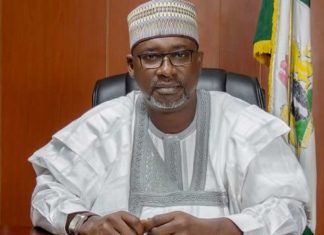Nigeria lost about $100 billion between 2008 and 2021 as a result of conflict in the northeast, according to a recent study by the United Nations Children’s Fund.
The report also emphasized how heinous abuses of children and acts of violence triggered a severe economic downturn that affected the entire nation, not just the troubled region.
According to a report titled “The Economic Cost of Conflict in Northeast Nigeria,” even if the conflict were to end right now, there would still be between $150 billion and $200 billion in losses by the year 2030. Losses from lost educational opportunities would account for another $150 billion in losses by that year.
The UNICEF Representative, Cristian Munduate, stated at the report’s launch on Wednesday in Abuja that the study shows that, as of 2021, the Nigerian economy was 2.5% smaller than it would have been absent the conflict.
It goes beyond numbers and statistics; this is more than just numbers. The Nigerian economy was 2.5% smaller in 2021 than it would have been without the conflict, and the country needs to take this into account when making decisions.
“However, beyond the numbers, there are tales of shattered lives, of fractured families, and of missed opportunities. But perhaps the most heartbreaking aspect of this study is the effect on our children.
There were 900,000 reported malnourished children in 2021, and close to 300,000 were reported to have acute malnutrition. It was estimated that one million children missed school because of the conflict.
She claims that the report serves as a crucial call to action for preserving the youth generation’s future.
“We have a moral obligation to act, and we must react. Acting must begin immediately. Both our country’s economic development and the future of our children are at risk. To ensure that Nigeria has a brighter future, we must prioritize peace and the defense of children’s rights.
Each statistic in this report is a child, a future, or a hope. A strong call to action exists in addition to the astounding numbers. We cannot dismiss it. Munduate added that the stakes were simply too high.
Additionally, Ibrahim Sesay, Chief Child Protection Specialist for UNICEF Nigeria, stated that it is vital to consider the lives that go into the statistics.
“When you look at the grave violations that have been committed against children in Nigeria, just from 2016 to the present, there have been over 14,890 documented and verified cases of grave violations against children,” he said. For these children and their families, each of the numbers represents a tragedy.
We also observe a lack of education, as evidenced by the fact that communities are struggling during a time of financial hardship while families and children who should be in school may be uprooted from their homes.
The report shouldn’t be viewed as a tale of hopelessness, but rather as a manual for understanding the level of compassion and concerted action that we should implement, as well as how to ensure that the kids go back to school and focus our resources and efforts on helping the kids’ psychosocial recovery.
As for the psychological effects of the conflict on children, Borno State Governor Babagana Zulum said that there was a need to address insecurity.
The chief adviser for Zulum, Adamu Abass, said that although the report focuses on the financial costs of the conflict in the northeast, there are additional costs for the kids.
What are these children trying to achieve? According to me, an evaluation is necessary so they can contribute to and fit into society. Future generations will be raised by children.
Insecurity is a crucial component of the overall conflict situation. While we can keep addressing the symptoms, doing so will only be a waste of time if we do not also address the root causes of insecurity. The foundation of insurgency needs to be addressed, he said.
Join Television Nigerian Whatsapp Now
Join Television Nigerian Facebook Now
Join Television Nigerian Twitter Now
Join Television Nigerian YouTUbe Now





